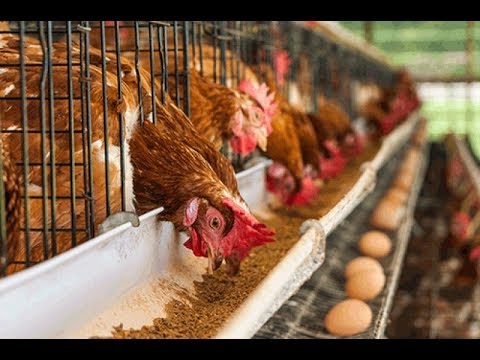As Ghana grapples with the challenges of economic development, food security and job creation, one sector that holds significant promise is the poultry industry.
Once a thriving pillar of the national economy, the poultry sector has declined dramatically over the years, with local production meeting less than 10 per cent of the country's consumption.
The consequences of this decline are far-reaching, with lost revenue, reduced economic activity, and increased reliance on imported goods.
The reasons for this decline are complex, but the solution is clear: bold, consistent, and coordinated action is needed to revitalise the sector.
The government, private sector, development partners, and financial institutions must come together to support a national poultry development agenda.
This agenda should prioritise investments in local feed production, national breeding programmes, hatcheries, and processing infrastructure.
A strategic managed trade policy is also essential to level the playing field for local producers. Import controls and tariff adjustments can help prevent dumping and ensure that local producers can compete fairly.
Additionally, blended finance mechanisms and de-risking investment can crowd in private investment into poultry production and processing.
The benefits of revitalising the poultry sector are numerous. Not only will it create sustainable jobs and stimulate economic growth, but it will also improve food security and reduce reliance on imported goods.
Moreover, a thriving poultry sector can empower women and youth, providing them with entrepreneurship opportunities and access to finance. By supporting women and youth, we can unlock the sector's full potential and drive economic growth.
The poultry sector's decline has had a devastating impact on the livelihoods of many Ghanaians. Thousands of farmers, processors and distributors have lost their jobs or seen their incomes decline significantly. The sector's collapse has also had a ripple effect on the entire value chain, including feed millers, veterinarians and equipment suppliers.
However, with the right policies and investments, Ghana's poultry sector can be transformed. We can build a sector that is competitive, sustainable and beneficial to all stakeholders.
We can create jobs, stimulate economic growth, and improve food security. We can also promote Ghanaian culture and identity by promoting locally produced chicken.
The Graphic Business believe that the time for action is now. This is because, the country’s poultry sector can be transformed into a vibrant engine of economic growth, youth employment, and food sovereignty.
We urge all stakeholders to rally behind a national poultry development agenda and work towards a common goal: to feed Ghana with Ghanaian chicken – nutritious, proudly local, and economically empowering.
Let us seize this opportunity to revitalise the sector and build a brighter future for Ghana's economy and people. The future of our poultry sector depends on the actions we take today. Will we rise to the challenge and reclaim our rightful place as a poultry powerhouse in the sub-region? The choice is ours.
We must also recognise the importance of unity and coordination in revitalising the poultry sector. Farmers, processors, distributors and policymakers must work together to develop a cohesive national strategy that addresses the sector's underlying challenges.
By working together, we can create a sector that is competitive, sustainable, and beneficial to all stakeholders. For us, revitalising Ghana's poultry sector requires bold, consistent, and coordinated action.
We must prioritise investments in local feed production, national breeding programmes, hatcheries and processing infrastructure. We must also promote a strategically managed trade policy and blended finance mechanisms to crowd in private investment.
By working together, we can transform the sector and build a brighter future for Ghana's economy and people.
